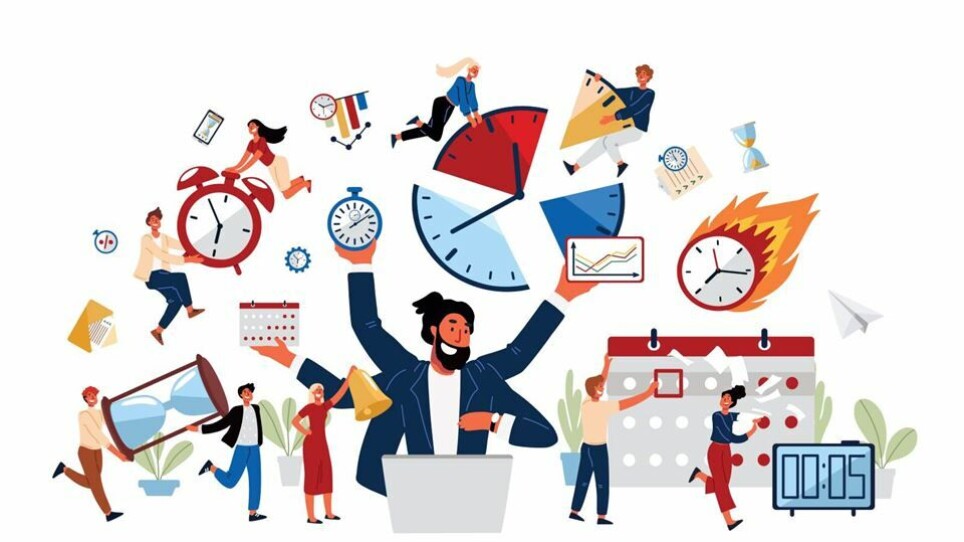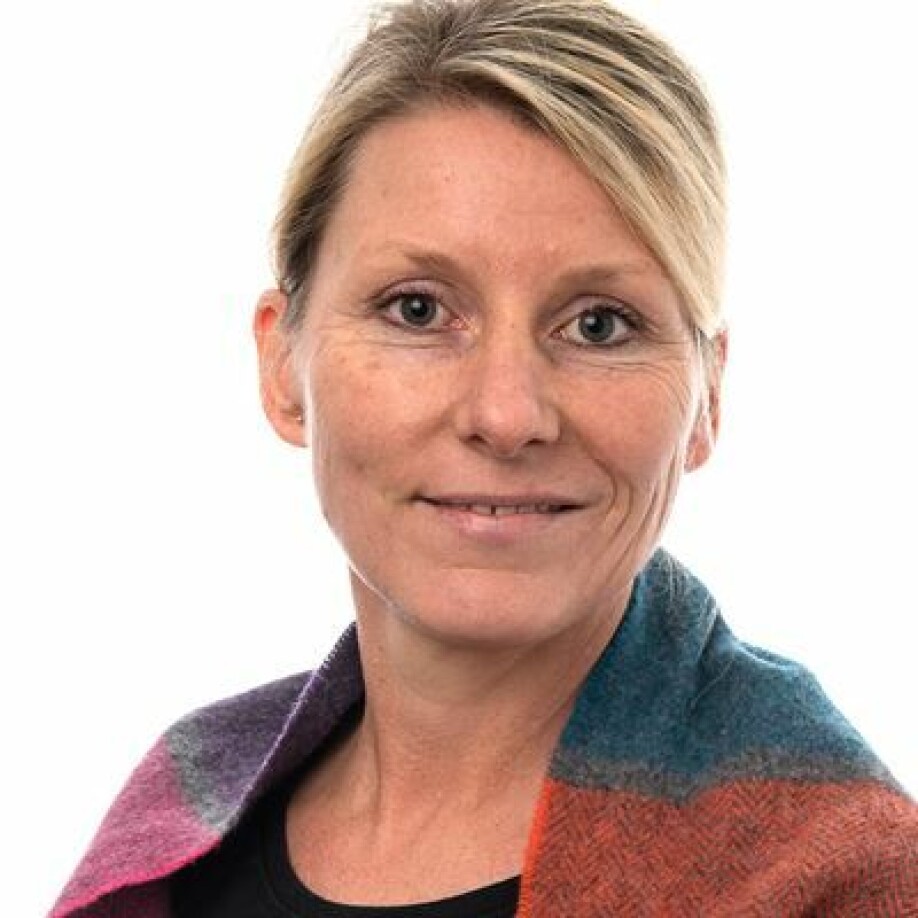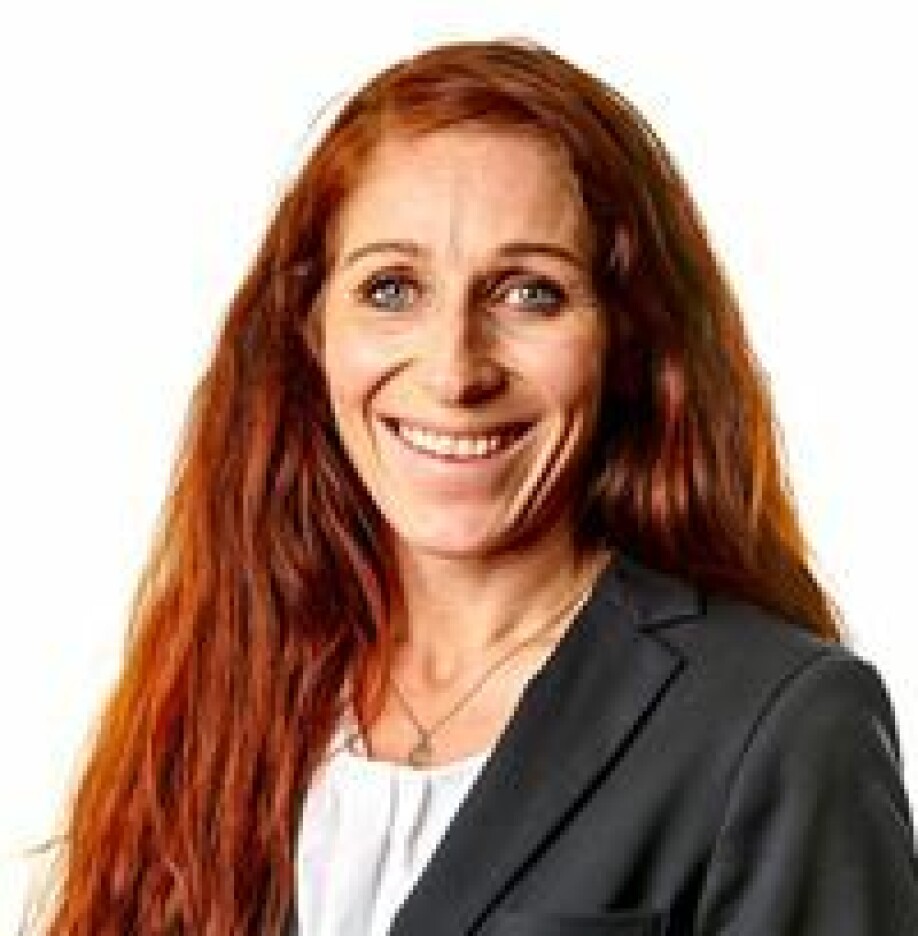THIS ARTICLE/PRESS RELEASE IS PAID FOR AND PRESENTED BY The Norwegian School of Sport Sciences - read more

Male dominance in Norwegian sport: Top officials depend on a ‘ground crew’ at home
Doctoral candidate Hanne Sogn believes male dominance among top officials in Norwegian sport is still a problem. The hectic working day in which top officials have to be available 24/7 is one of the biggest challenges.
"My message is that we have to stop focusing on women; fix the system instead!"
Hanne Sogn has clear recommendations for Norwegian sport in her doctoral thesis. In it, she asks the question: Why do men still have the most power and influence in Norwegian sport?

Was secretary general
That was the question Sogn was addressing when she started work on her doctorate in 2018. She has herself been one of the exceptions in Norwegian sport.
A female secretary general.
For six and a half years in the Norwegian Basketball Association and a year as a deputy in the same position in the Norwegian Climbing Association.
She didn't think too much about the fact that she was a rare commodity. Until one day she was presented with the cold facts.
85 per cent of the elected top officials were men. Here we are talking about those who are often called president of their federation. But there was no more lighthearted reading among the administrative (secretary general) or top management of branches of the sport organisation.
The proportion was between 70 and 85 per cent in all groups.
Sogn wanted to find out about this problem, and so the doctorate eventually came about.
Has interviewed close to 40 managers
In recent years, this doctoral candidate has been deeply involved in Norwegian sport. She has participated in and observed meetings arranged by NIF (the Norwegian Confederation of Sports), followed the day-to-day activities of many of the top officials, and not least interviewed almost 40 current and former top officials.
Why there aren't more female secretaries general? I guess it's because it's a round-the-clock job. There's something about that: it's a round-the-clock job.
Both women and men.
Sogn started by asking some relatively new top female officials. What was it like being the leader of a male-dominated organisation?
“I was actually a little surprised by the response. None of them thought it was a problem. They didn't think about it critically,” she says.
Sogn admits she did not do this either when she was in the same position.
Measures for women have not worked
These answers made their mark on her ongoing work, because it was not necessarily a case of bad work culture or examples of discrimination and abuse of power.
Sogn believes that the sport organisation has shown that they are willing to take gender equality seriously. During the period she has worked on her doctorate, a number of measures have been initiated to both educate and equip women leaders.
The male leaders that Sogn interviewed also wanted a change and could see that there is a need for a better gender balance.
Attitudes are not the problem, as Sogn sees it.
“The position and culture are based on the fact that they have been dominated by masculine logic for many years. They have created the premise for how the organisation works. It is this masculine logic that I found as a problem to explore more closely,” she explains.

Must be available 24 hours a day
That is where the overwhelming day’s work for a top official in sport organisations comes in. Common to all branches of sport organisations that Sogn followed were the demanding days with long meetings, travel and an expectation to always be available.
“The working day of a top official in sport organisations is extremely hectic. They must be available 24/7. It is often crisis-oriented and unpredictable. Telephone calls come at almost any hour, day or night. There is a lot of travelling, and there are always meetings with NIF, local associations and other special federations,” she says. “The optimal top official has few obligations at home.”
It is these everyday logistics that have eventually become the consistent theme in her project.
A key question has been: Who can be a top official in sport organisations with this intense everyday work?
“The top officials I interviewed were very dependent on having a ground crew who could take care of things at home,” Sogn says.
She wonders if it is even possible to get an organisation that is as equal and diverse as they want it to be.
“Far from everyone can or want to have this ground crew. This results in a very homogeneous group at the top of Norwegian sport,” she says.
Many power struggles
The complex organisation of sport also comes into play here. A top official has to pay attention to many different stakeholders: elite sports and with it the commercial market, as well as recreational sports, children, young people and volunteers.
In simple terms, these different groups rarely have the same goals.
“Although we may boast a lot about the way Norwegian sport is organised, it can also be a great challenge to have everything gathered under the same umbrella. Precisely because all these considerations make the working day of a top official so demanding,” Sogn says.
In her thesis, she describes a sport organisation that is very concerned about being democratic and based on of being democratic and based on good values. However, the culture is strongly marked by power struggles between the different elements.
They are therefore themselves helping to maintain a power structure that best suits a male leader. Or reproducing an orthodox masculine way of being, as Sogn writes in her thesis.
Five goals for sport organisations
These are precisely some of the points that Sogn wants to convey in her thesis. She hopes that the sport organisation will gain even more knowledge about the barriers that still exist for women, but also for more equality-oriented men who want to be at the top in sport organisations.
“Sport organisations have been interested in my perspective and are willing to listen. The hope is that what I have found out can also have an impact in the future,” Sogn says.
Here are five points she hopes that sport organisations will reflect on and look at specific measures for:
- Become more aware of own ways, practices and priorities. Everyone has contributed to this system being able to continue. The kind wife who acts as the ground crew also supports the commitment and allows her husband to travel 250 days a year. Or the leader who always makes himself available and answers the phone at all times.
- What kind of top officials do we recruit? Are they leaders who are ready to live out the values of sport organisations, or are they more preoccupied with other values?
- The way sport is organised and structured. Having so many different interests gathered under the same umbrella creates many conflicts. This makes the working day of a top official very demanding and at times full of conflict.
- How the many meetings are organised. The sport organisation has a culture of many meetings, across organisational levels. Can these be organised differently and become more digital, for example? It would be helpful to the leader of a local association in Troms to be able to attend digitally, instead of spending two or three days travelling to Oslo.
- Discuss and look at top officials’ working days. According to Sogn, this is largely something that was shaped in the past, based on the circumstances of a middle-class man.

This article/press release is paid for and presented by The Norwegian School of Sport Sciences
This content is created by The Norwegian School of Sport Sciences' communication staff, who use this platform to communicate science and share results from research with the public. The Norwegian School of Sport Sciences is one of more than 80 owners of ScienceNorway.no. Read more here.
See more content from The Norwegian School of Sport Sciences:
-
Football expert wants to change how people watch football at home
-
Kristine suffered permanent brain damage at 22: "Life can still be good even if you don’t fully recover"
-
Para sports: "The sports community was my absolute saving grace"
-
Cancer survivor Monica trained for five months: The results are remarkable
-
What you should know about the syndrome affecting many young athletes
-
New findings on how athletes make the best decisions




































